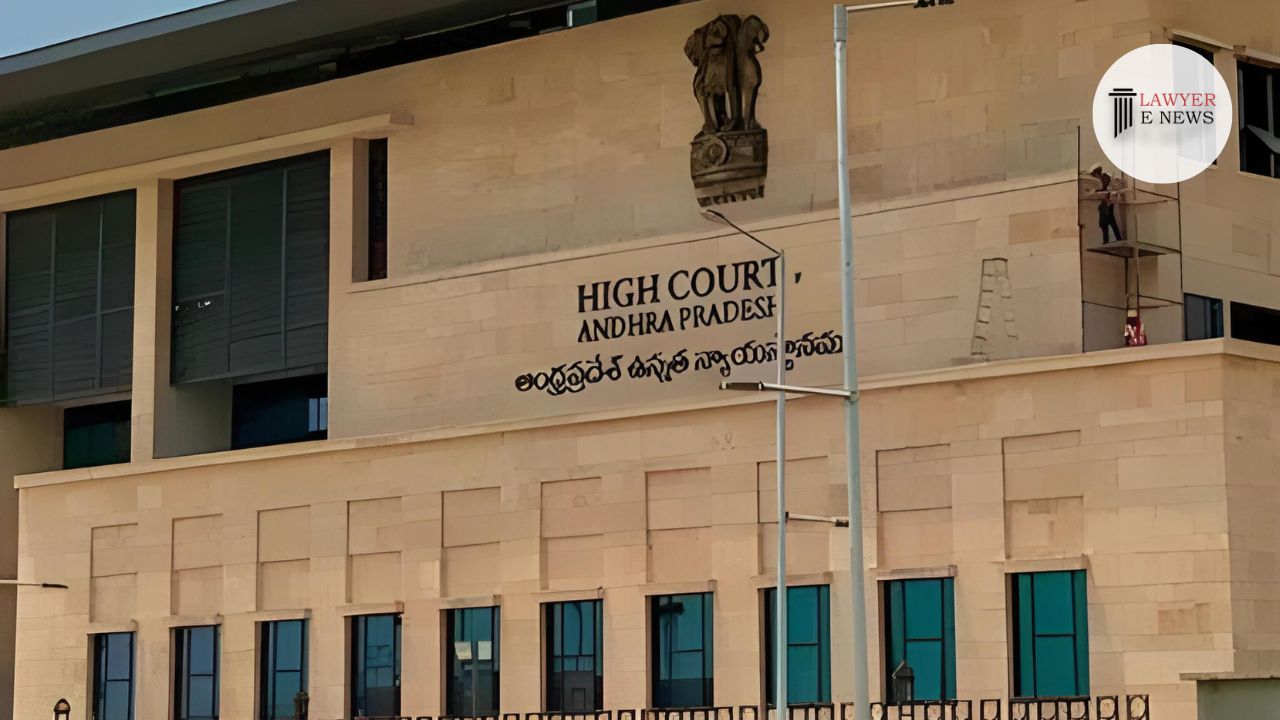-
by Admin
15 February 2026 5:35 AM



The Andhra Pradesh High Court recently allowed an appeal by Sri Hanchate Suresh Babu, granting him a divorce on the grounds of desertion and mental cruelty after more than two decades of separation from his wife, Smt. Hanchate Latha Bhai. The court observed that continuous separation without reconciliation constitutes mental cruelty under Section 13(1)(ia) of the Hindu Marriage Act, 1955, especially when no effort has been made by either party to resume cohabitation. Citing Supreme Court precedents, the court held that long-term estrangement signifies an irreparable breakdown of marriage, justifying the grant of a divorce.
"Continuous Estrangement Is Mental Cruelty in Matrimonial Matters," Says Andhra Pradesh High Court
The case revolved around a divorce petition filed by the appellant, Sri Hanchate Suresh Babu, under Section 13(1)(ia) and 13(1)(ib) of the Hindu Marriage Act, 1955, on the grounds of cruelty and desertion. The marriage between the appellant and respondent took place in 1994, and while they initially lived together, the relationship deteriorated, leading to a prolonged separation. The couple had a son and a daughter, who were raised separately—one with each parent.
After multiple failed reconciliation attempts through panchayat meetings, the appellant sought a divorce, claiming that the respondent deserted him without reasonable cause and that the prolonged separation itself amounted to mental cruelty. The trial court, however, dismissed his petition in 2010, leading to this appeal before the High Court.
The appellant argued that his wife’s long-standing absence from the matrimonial home without any attempt at reconciliation constituted desertion and inflicted mental cruelty. He cited recent legal precedents where courts recognized prolonged separation as a factor in mental cruelty, rendering the marriage irretrievable.
The High Court, agreeing with the appellant, held that an unbroken period of estrangement over 20 years demonstrated a clear case of desertion. It also emphasized that the absence of any cohabitation for such an extended period was mentally exhausting for both parties, thereby meeting the threshold for mental cruelty under Section 13(1)(ia) of the Hindu Marriage Act.
"The long separation and absence of cohabitation lead to an irretrievable breakdown of the marital relationship, and in such cases, continuing the legal tie would serve no purpose but to inflict cruelty on both spouses," the Court observed [Paras 19-22].
The Court referenced the landmark Supreme Court decision in Samar Ghosh v. Jaya Ghosh, which held that mental cruelty could be established by prolonged separation that renders the marriage effectively void of substance. Similarly, it cited Rakesh Raman v. Kavita, where the Supreme Court observed that continued separation, bitterness, and a complete breakdown of marital ties constitute cruelty.
"When parties have lived apart for more than two decades, with no efforts towards reconciliation, the law cannot force them into an unwanted marital bond. Such a situation is tantamount to mental cruelty," the Court noted [Paras 1, 16-18].
Although irretrievable breakdown is not a statutory ground for divorce under the Hindu Marriage Act, the High Court found that courts may still consider this principle when adjudicating cases of prolonged separation and mutual bitterness. In this case, the Court found that the complete breakdown of the marital relationship left no room for reconciliation, thereby meeting the conditions for granting a divorce.
The Court highlighted that in cases where marriages have become a "legal fiction," as in this case, it would be unjust to deny a divorce based on technical grounds. This approach aligns with recent judgments advocating for a pragmatic approach in matrimonial disputes.
"In circumstances of prolonged separation with an irreparable breakdown, continuing the marriage serves no purpose other than legal entrapment, causing harm to both parties," the Court ruled [Para 21].
The Court noted that in civil cases, including matrimonial disputes, the standard of proof is based on the preponderance of probabilities rather than proof beyond a reasonable doubt. In assessing the evidence, the Court held that the appellant had successfully shown a pattern of abandonment and lack of interest from the respondent, satisfying the legal grounds for both cruelty and desertion.
"The petitioner has sufficiently demonstrated his wife's prolonged absence and lack of efforts towards reconciliation, fulfilling the requirements for divorce under Sections 13(1)(ia) and 13(1)(ib) of the Hindu Marriage Act," the Court observed [Paras 13-15].
High Court Reverses Trial Court’s Decision, Grants Divorce
In its final order, the Andhra Pradesh High Court allowed the appeal, setting aside the trial court's decision and granting a decree of divorce on the grounds of desertion and mental cruelty. The Court underscored the need to adapt legal interpretations to contemporary matrimonial issues, emphasizing that the law should recognize the psychological toll of forced marital ties when reconciliation is no longer possible.
Appeal Allowed: The High Court reversed the trial court's order and granted a decree of divorce, formally dissolving the marriage.
Recognition of Long Separation as Cruelty: The Court held that continued separation for over two decades amounts to mental cruelty, thereby satisfying the legal grounds for divorce.
Prolonged Estrangement Equals Mental Cruelty: Courts are increasingly recognizing that extended periods of separation constitute mental cruelty, especially when reconciliation attempts have failed.
Judicial Discretion in Divorce Cases: Even though irretrievable breakdown is not explicitly a ground for divorce, courts may still consider it under the lens of cruelty when faced with cases of prolonged separation.
Modern Interpretation of Matrimonial Law: This decision reflects a shift towards a practical interpretation of matrimonial disputes, aiming to avoid forced continuance of marriages that are effectively dead.
Date of Decision: October 25, 2024
